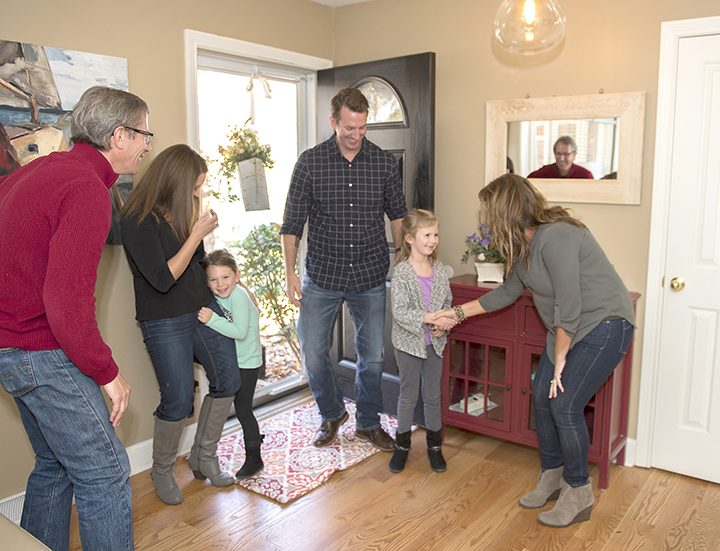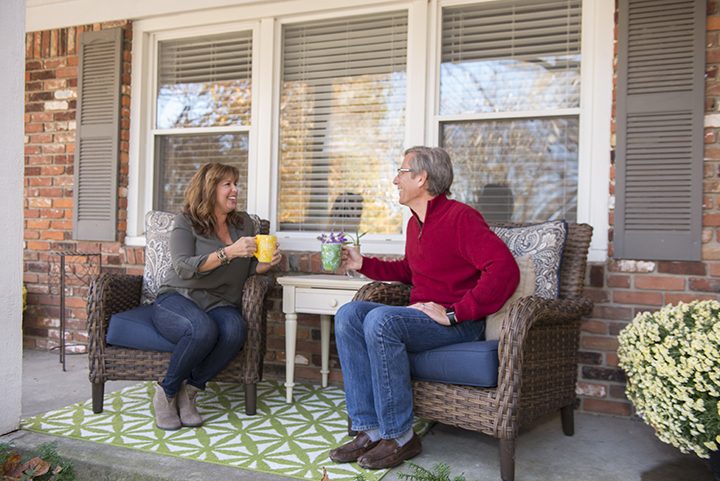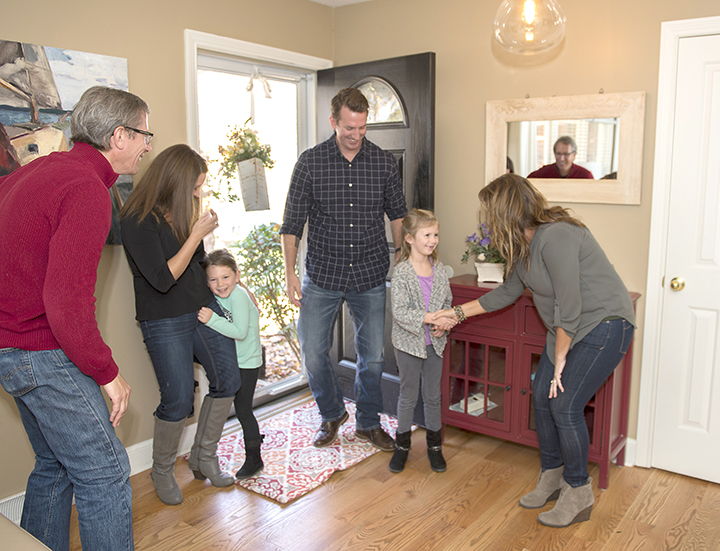
For Pamela Schneider, the room-renting site Airbnb isn’t just a fun way to make extra cash. It changed her life.
The West Carmel resident said she was at risk of losing her home after she and her husband were both out of work. Her daughter suggested they try listing their house on Airbnb, a website that connects people with extra space in their home with those looking for a place to stay. Some people do it once a year for big events like the Indianapolis 500, while others have guests stay many times a week.
“It’s been a huge gift for us,” Schneider said. “Not only has it provided money, but the people have been wonderful, and some of them we consider to be friends. We still keep in touch with them.”
Airbnb has more than two million listings and 60 million users worldwide in 34,000 cities and 191 countries. It had more than 70 rentals in Carmel as of Nov. 17. In the tourism industry, experts are scrambling to adapt to this changing industry and what it means for taxes, regulations and tracking visitors.
“It has seismically changed the lodging industry,” said Brenda Myers, president and CEO of Hamilton County Tourism, Inc.
Some hotel owners have been seeking more regulation of Airbnb sites because it presents new competition. In Hamilton County, officials in Carmel, Fishers, Noblesville and Westfield all said they have no specific laws regarding Airbnb. But that may change soon in Carmel.
The City of Carmel could crack down on Airbnb rentals by requiring homes to rezone as a commercial property and commercial tax rates. A letter was drafted in November to be sent to all Clay Township homes advertising on the site.
“Unless the property is zoned as a hotel or boarding house or has a variance, it cannot operate as a business,” Carmel Mayor Jim Brainard said. “Leasing rooms is a business. It is not fair to adjoining homeowners who relied on zoning when purchasing their homes. Conducting a commercial business may also subject the property owner to the commercial property tax rate, roughly double the residential rate.”
Schneider said she hopes the city doesn’t take steps to “regulate their citizens out of business.”
“To follow Mayor Brainard’s suggestion to double our property taxes, which have already more than doubled under his tenure, is insanity,” she said. “To rezone us as a business in a residential area isn’t a realistic solution, either. There are hundreds of cottage businesses in Carmel that would fall under similar guidelines as Airbnb. Where do you draw the line?”

Local benefits
In May, Karen Kedanis decided she wanted to give Airbnb a try. Her kids are grown, and she loves hosting people. She’s proud of her four-bedroom home on Beechmont Drive in Carmel, so she thought she’d give Airbnb a shot.
“My husband just wanted me to rent out a room, but I said, ‘Let’s do the entire house,’’ she said.
In the past year, she said she’s hosted about 25 guests and turned it into a nice way to pay for vacations.
“I do very well,” she said. “My husband was surprised. He thought I’d do well, but it’s gone really well, and he’s proud.”
Ben Breit, press secretary at Airbnb, said Airbnb hosts can actually be an economic driver for cities and help pump money into the local economy.
“For visitors on a budget, home-sharing can help them come more often to Carmel and stay longer, helping to support restaurants and small businesses in the process,” he said.
The next step
Although many hosts and guests enjoy Airbnb, many local officials say it creates unfair competition because Airbnb hosts aren’t paying by the same rules as local hotels and bed and breakfasts.
In Marion and Hamilton counties, an innkeeper’s tax helps pay for items like Lucas Oil Stadium, convention centers, city tourism marketing and more. Airbnb hosts are required by law to pay these taxes, but it’s not always easy to enforce.
Airbnb has urged its hosts to follow the law. During the U.S. Conference of Mayors in Indianapolis in June, an Airbnb executive told mayors the company wants to pay these taxes. Airbnb now has voluntary tax agreements with municipalities in 18 states, but none in Indiana.
“Carmel’s host community wants to pay their fair share and we want to help,” Breit said. “Along those lines, we (at Airbnb) are engaged in productive conversations with officials throughout Indiana to pay local taxes.”
Myers said a discussion about how to deal with Airbnb is a regular topic at almost every tourism industry event or conference.
“From a governmental perspective, it is generally recommended to regulate them because you at least know where they are,” she said.
Competing with hotels?
Jeffrey Brown, CEO at Schahet Hotels, which includes the Hampton Inn in Carmel, said the playing field is not level. He pointed to things like safety features, such as room keys, smoke detectors and sprinkler systems, that hotels are required to provide but Airbnb sites might not. He said it’s one thing if someone rents out a room on occasion, but it it’s being run as a business then it should comply by the same rules.
“If you’re having pay-to-stay at your house several times a week, that’s a business, plain and simple,” he said.
Kedanis said she doesn’t see her Airbnb listing as competing with local hotels.
“I offer something totally different, a choice for something more personal,” she said. “I offer an experience in someone’s home, a slice of Carmel culture.”
Hamilton County Tourism CEO Brenda Myers said Airbnb doesn’t represent a “huge problem” in Hamilton County, but other cities nationwide have had different experiences. She said Carmel’s 70-plus listings represent only about 1 percent of the rooms in the nearby tourism corridor, equal to a small hotel.
It may be difficult to ensure compliance with Airbnb laws, but Brown said that’s not a reason to avoid taking action.
“There are a lot of laws on our books that are tough to enforce, but we still make these things against the law,” he said. “It doesn’t make it right.”



